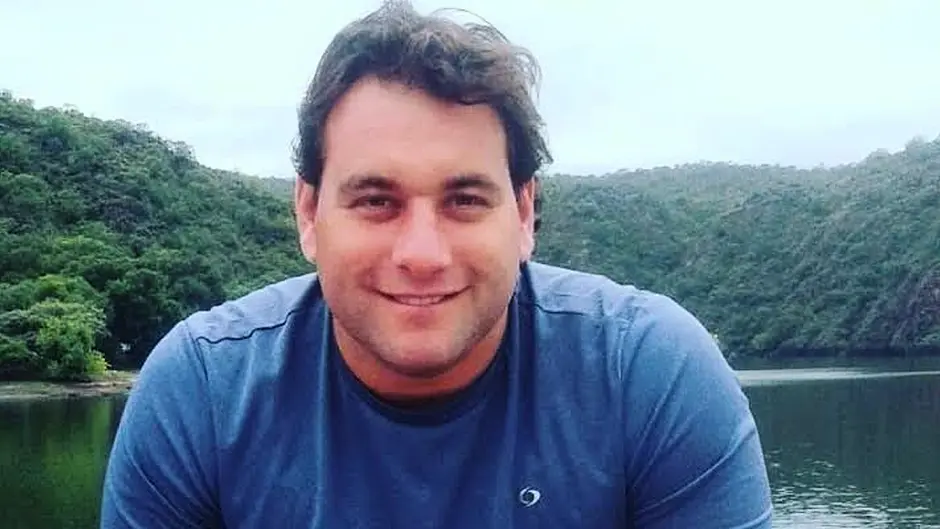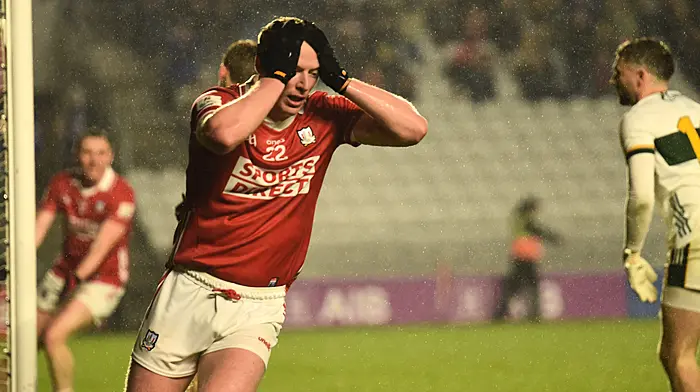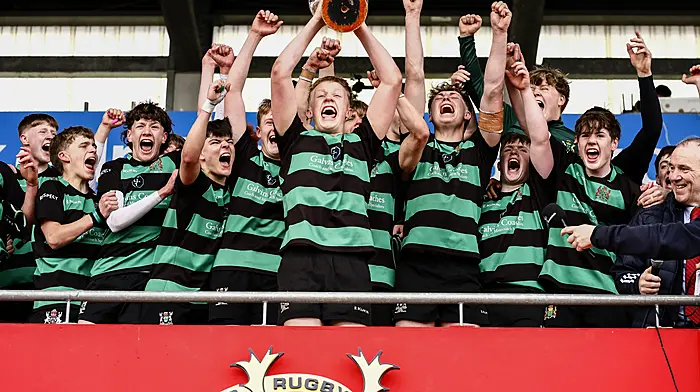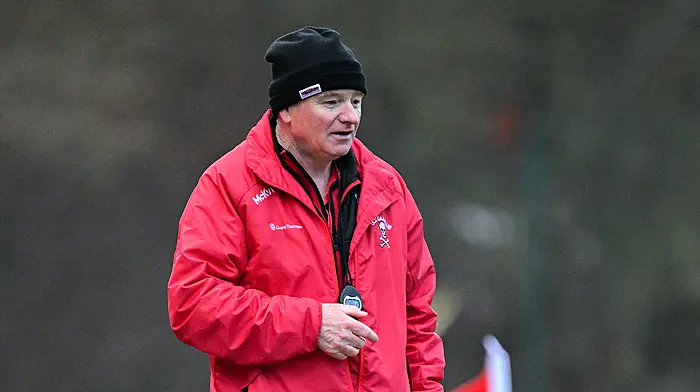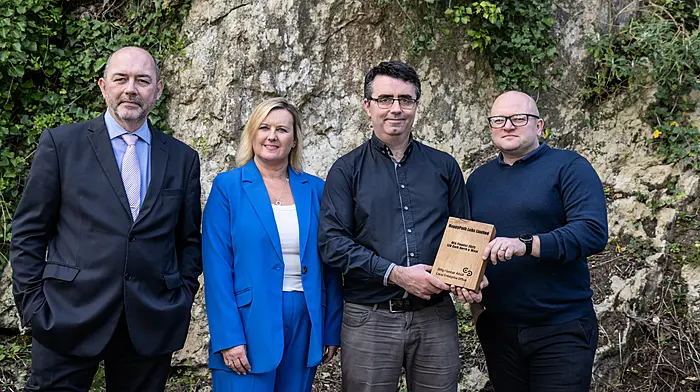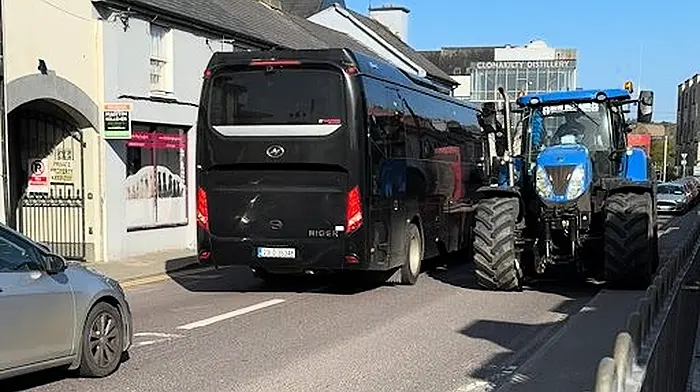GUILLERMO Castex had a few expectations when he came to Ireland, but it’s safe to say that a lockdown due to a global pandemic was not of them.
The Argentinian arrived last autumn and is currently combining strength & conditioning roles with Bandon RFC and Bandon Grammar School. Coming to Ireland was always an ambition, ‘to explore the incredible landscapes’, as he puts it and it was increased based on the recommendation of his friend Alejandro Gonzales, who had visited here.
That was two years ago, when Guillermo was still working with the Argentine Rugby Union (UAR), meaning time was at a premium, but last summer he decided to travel to Ireland for three months to sight-see and learn some English.
Contact with Bandon player and BGS coach Santiago Gonzales Quaranta and Fr John Kingston led to a meeting with Bandon president Dan Murphy and sports director Conor Slattery, to whom he is grateful for offering him the chance to settle in the town and work with the club and the school.
A native of Villa Dolores in the province of Cordoba, Guillermo began playing rugby when he was seven thanks to the input of his brother Javier and slowly worked his way from back to front.
‘It was not the only sport that I practiced but if I liked the most,’ he says.
‘I started at left wing and inside centre until I was 14, then I began to play in the back row. When I was 15, Javier suggested I play at a higher level with Cordoba Athletic Club, where I would have many opportunities to grow and improve my game. I was able to do it thanks to the great effort of my parents.
‘The following year, I had the opportunity to be part of the provincial U16 team at blindside flanker and progressed until U19, but that same year I suffered my first knee injury training with the club's first team.
‘When I recovered, the coaches proposed to change me to loosehead prop, due to my height of 1.79 cm (5’ 10½”) with the aim of playing in the club's first team. That was difficult to reach due to the standard – there were players from the senior provincial team and also the national team, ‘the Pumas’. Finally, at the age of 25, I had my first game in the club's first team and I played a lot but then I had other injuries that made me not have much continuity.
‘By then, I had become a physical trainer in the UAR and the job was becoming more demanding, so I had little time to train and I had to make the decision to finally stop playing rugby at the age of 27.’
What does Guillermo see as the major differences between rugby in northern hemisphere and that of the south?
‘In my humble opinion and personal appreciation, the game that the southern hemisphere raises is more risky and less structured with respect to the north,’ he says.
‘Both have systems and game structures that are respected, but the south allows itself to leave the script more and play based on momentum. Perhaps to my appreciation and personal taste, these factors make it a little more entertaining to the game, with more surprising factors.
‘It makes the game in the southern hemisphere more physical, with a greater number of contacts and impacts per game.’
Off the field, there are differences, too.
‘Culturally, the difference I notice mainly is in the social life of people,’ he says.
‘I am used to having a lot of social life in Argentina, having more club life, where we stay longer before and after each training and games.
‘I must say, people here are very friendly, supportive and caring, that helps a lot. Another difference is that in Argentina we live very intensely and we are very passionate about everything we do, here they are very calm and have a more relaxed lifestyle. The climate here is a great influencing factor in many aspects, where it tests you day by day, in every way, but personally I really like the culture here, its rituals, its food, its drinks, its music, so on. They are very happy and fun people.’
Helping Guillermo to settle has been his strong progress in learning English almost from a standing start, even with the regional idiosyncrasies local to the areas.
‘The truth was that I spoke almost nothing,’ he says.
‘I understood more than I could speak, but now after seven months I have improved a lot, together with the English course that I do and also here the people are very patient!
‘But I have a double challenge, not only learning English but the English they speak here is more difficult and especially the West Cork English, since they speak very fast and the phonetics are different from British or American English.’
Naturally, there are differences in how he operates as a coach when dealing with adults compared to with teenagers in a school setting, but he enjoys getting the message across.
‘My main role in both institutions is to be an educator,’ he says.
‘I try to transmit and teach the importance of conscious training, thinking about the “why?” and “what for?” of what they are doing, which, this way of working leads us to focus on the development of quality over the quantity or variability of exercises or training. My motto is that working with complex and difficult exercises does not make you a better coach.
‘I take into account several factors that will greatly influence the development of learning in each group or institution, but the most important are: the work time I have in each group. With the adolescents of Bandon Grammar, I have more time and I can work more on the development of motor skills and training initiation, development of strength in the gym.
‘Other factors are the infrastructure and materials that I have in each institution, also the culture or the sense of belonging they have towards the institution and the most important thing for me is the age differences they have between one group and another.
‘There are different stages of physiological development, mental processes and different learning times with respect to a group.’
Naturally, the 10,000km from Bandon to Villa Dolores feel even longer in a lockdown, but the hospitality here has been a boon.
‘I think that the pandemic made it difficult for everyone and being away from my relations makes it a little more difficult,’ Guillermo says.
‘Thank God, the people make me feel very good and there have been incredible gestures of generosity. In these times, we all have to do our bit and make more efforts than before.’
As to the future, he is enjoying West Cork but remains open-minded.
‘My short-term plans would be to get a new visa permit since I am not a European citizen but with a work contract the visa permit can be managed,’ he says.
‘In the next two years, I would like to continue here in Ireland. Destiny will guide me and take me where I have new challenges since it is my engine of life to continue growing.
‘Perhaps it is here or in another city or another country, I still don’t know but what I'm sure for now I would like to be here.’

